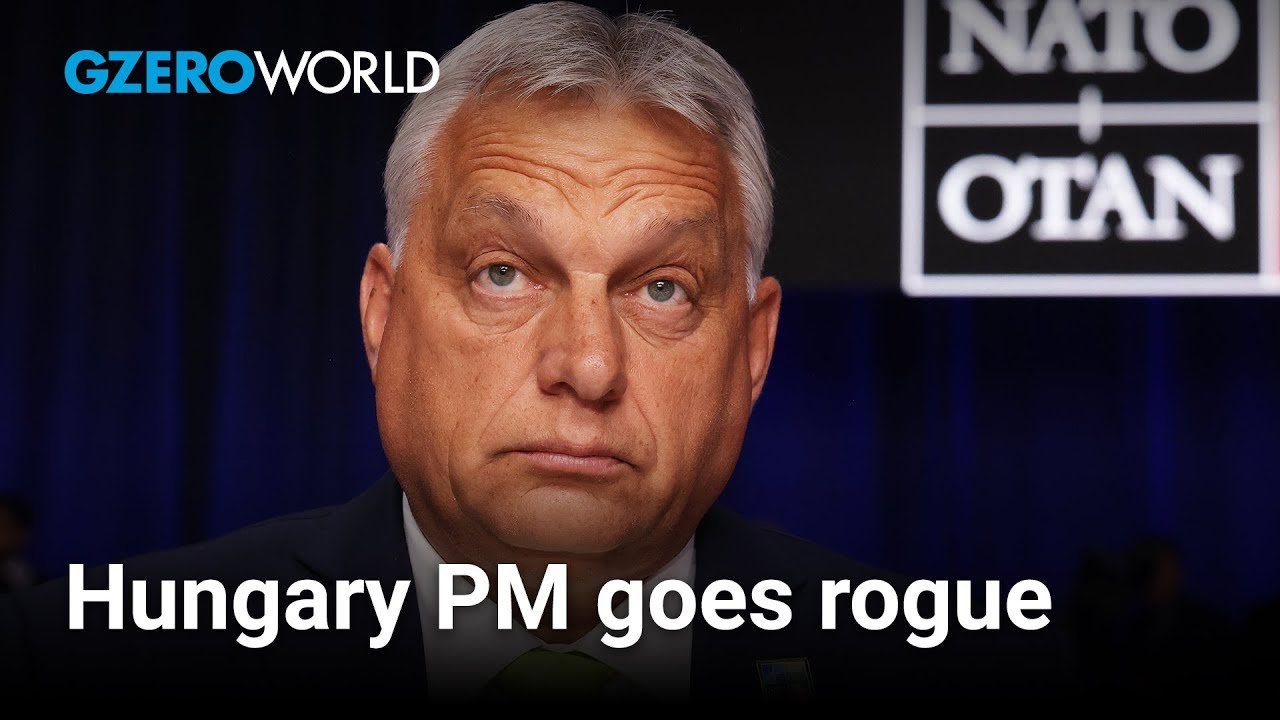Hungarian Prime Minister Viktor Orbán is undermining Western unity at the NATO Summit

Is Hungarian Prime Minister Viktor Orbán undermining Europe and Western unity following this year’s critical NATO summit? Just days after Hungary’s nationalist leader met with Russian President Vladimir Putin in Moscow and Chinese President Xi Jinping in Beijing, Orbán left the NATO 75th anniversary summit in Washington, DC to visit former president Donald Trump, a well-known critic of the alliance, at his Mar-A-Lago estate.
On GZERO World, Ian Bremmer sat down with Polish Foreign Minister Radek Sikorski on the sidelines of the summit to ask how NATO members deal with a renegade ally like Hungary and the challenges posed by Orbán’s coziness with authoritarian rulers. Orbán’s rogue trips are a sharp contrast with NATO’s unified stance, on full display at the summit, but Sikorski insists Orbán doesn’t represent the EU or NATO.
“Orbán is freelancing on behalf of Hungary, and that’s not a new thing,” Sikorski says, “He’s been denying Ukraine transit of defense goods, he’s also been vetoing the release of European money for Ukraine.”
Hungary also has a complicated history when it comes to its international borders, and Sikorski worries about any leader who is willing to redraw a border using force, rather than diplomacy. He says any negotiated settlement in Ukraine should be negotiated by the Ukrainians, and warns that thinking a partitioned Ukraine is inevitable is similar to the UK Prime Minister Neville Chamberlain’s strategy of appeasing Adolf Hitler in the lead-up to WWII.
“We can win this one,” Sikorski insists, “The Russians have advantage in tanks, but the Ukrainians have advantage in drones.”
Season 7 of GZERO World with Ian Bremmer, the award-winning weekly global affairs series, launches nationwide on public television stations (check local listings).
New digital episodes of GZERO World are released every Monday on YouTube. Don''t miss an episode: subscribe to GZERO's YouTube channel and turn on notifications (🔔).